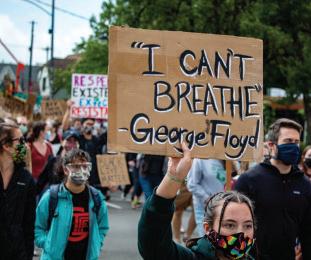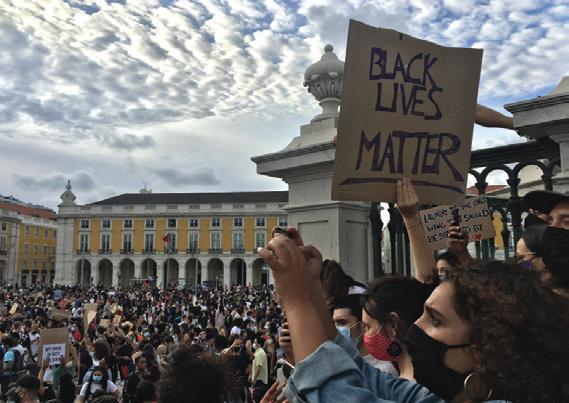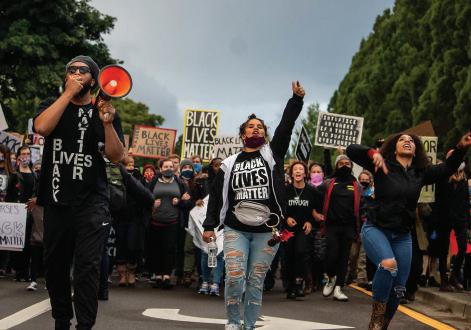
3 minute read
Black lives matter
Black lives matter movement
Though the Black Lives Matter Movement began about seven years ago, action has picked up rapidly in the last few months by Lexi Jackson | Photos by flickr
Advertisement



The Black Lives Matter organization was created in 2013 by Alicia Graza, Patrisse Cullors, and Opal Tometi. It was created in response to the lack of justice for Trayvon Martin when police officer George Zimmerman was acquitted of his murder.
According to the Black Lives Matter website, “Black Lives Matter is an ideological and political intervention in a world where Black lives are systematically and intentionally targeted for demise.”
Zoe Garcia, sophomore, said, “I support [Black Lives Matter] because I think that people of color, especially black people, have been mistreated by both the justice system and the current police system and it’s time for change so we can all be truly equal.”
In 2014, yet another black teenager was killed by law enforcement. Micheal Brown was murdered by Darren Wilson in Ferguson, Missouri. Wilson was acquitted. In response, BLM organized a national ride during Labor Day weekend that included more than 600 people from across the country. The national ride was called upon people from all over the US to bring an edn to police violence. After that event, 18 more cities develop BLM chapters in their cities.
In Minneapolis, Minnesota on May 25, 2020, police officer Derek Chauvin knelt on George Floyd’s neck for a reported period of 8 minutes and 46 seconds, which ultimately resulted in his death. Floyd was arrested after a store clerk claimed he passed a $20 counterfeit bill. The video of his death was widely shared in the media, causing a fire to be lit in a long overdue movement.
Protests began soon after the murder. On June 6, a reported half a million people protested in response to the police brutality in Minneapolis. BLM didn’t organize all of the protests across the country, but definitely influenced them. Thousands of protests began circulating throughout the world fighting for justice to be served for Floyd and every other black life lost due to police violence. Because of the protests, Chauvin was charged with second degree murder. Other officers standing by were charged with aiding and abetting second degree murder.
Daniel Q. Gillion, professor at the University of Pennsylvania, said, “If you aren’t moved by the George Floyd video, you have nothing in you and that catalyst can now be amplified by the fact that individuals probably have more time to engage in protest activity.”
Senior Rachel Castellón said, “I feel like Black Lives Matter has really changed the voices aspect of society. Now, the government and politicians are able to hear and notice how we feel. We’re able to speak out on the streets and able to speak whatever is on our mind. It’s really changed the way we view people and how much people can hold power simply from speaking out.”
Since the protest began at the end of May, numerous things have been changed and accomplished. Many city officials have vowed to remove Confederate or slavery-linked statues and monuments. On June 7, in Briston, Britain, protesters pulled down the statue of slave trader Edward Colston and pushed it into the water.
Two weeks after Floyd’s death, Minneapolis officials promised to disband the police department and replace it with something better. Additionally, members of Congress have made legislation to ban chokeholds and force officers to wear body cams and have dashboard cameras.
Although police officer Brett Hankinson was fired three months after entering the wrong apartment and murdering Breonna Taylor and the other two officers were placed on administrative leave, many argue that there was no justice for her. Instead of being charged with murder, the police officers stand accused of “endangering the lives in a neighborhood unit after firing the round,” according to the Washington Post.
Natalie Davis, senior, said, “Black Lives Matter is working to improve society, reform the police force, and every one who supports BLM will no longer be tolerant of blatant racism.”













